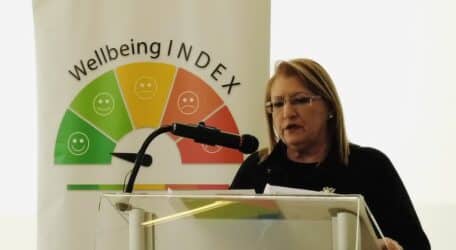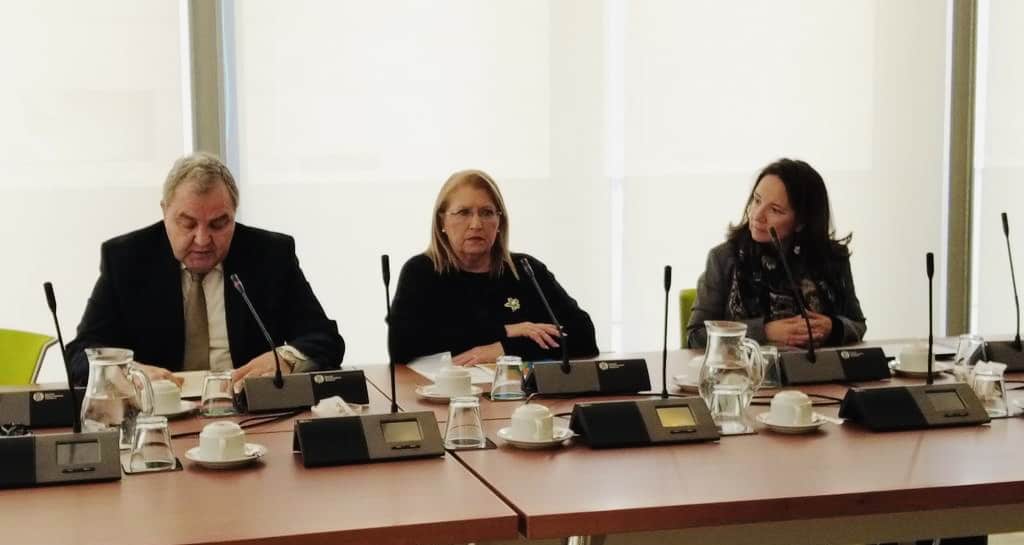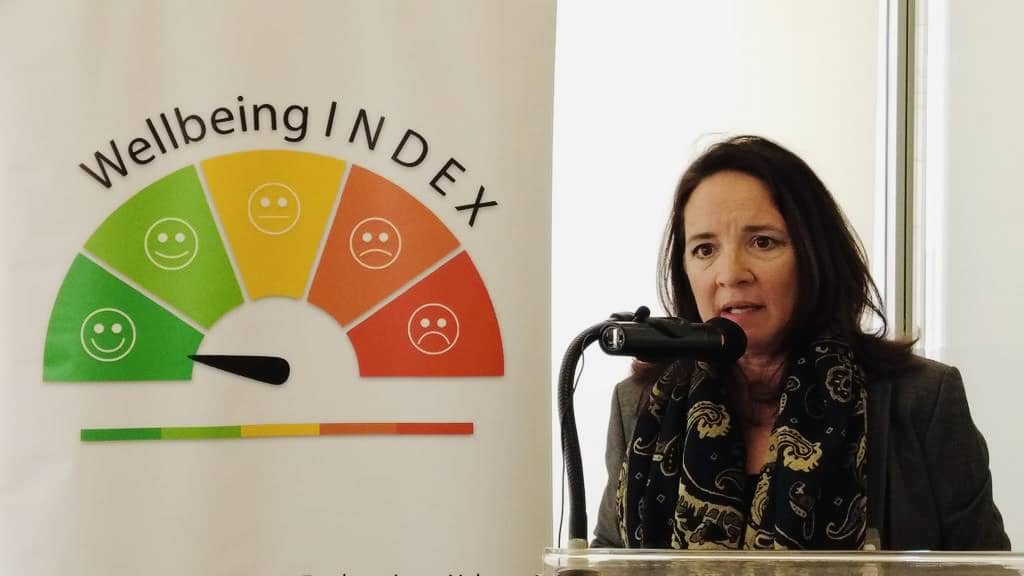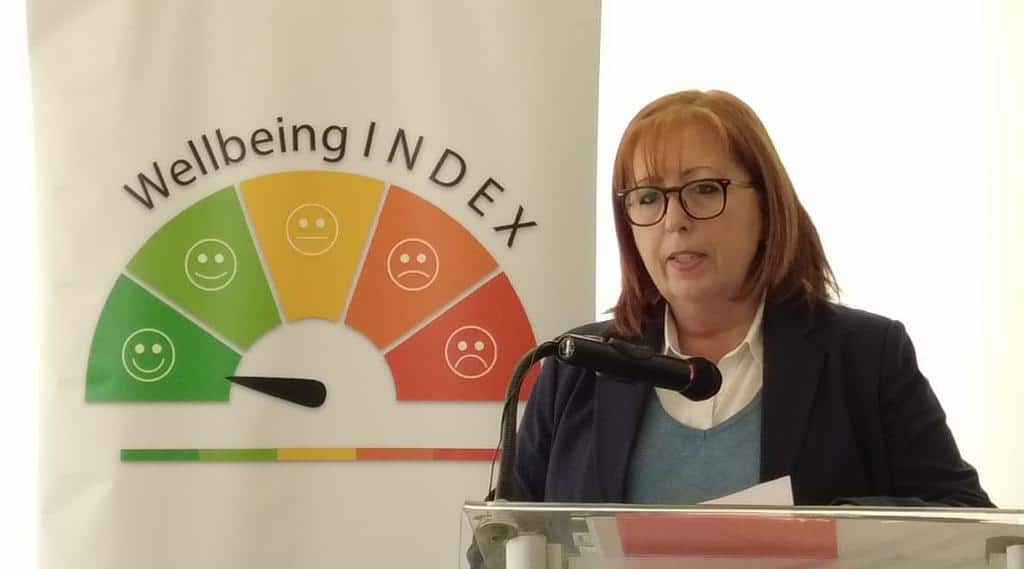
Wellbeing Index: Malta’s North Harbour residents ‘least satisfied’ with their lives
Those living in the North Harbour region, which covers the island’s most urbanised and populated towns, are reported to have the lowest life satisfaction on average in Malta in 2021, according to the latest findings emerging from the Wellbeing INDEX Project.
These findings, based on the latest statistics collected by the National Statistics Office, were presented to Parliament today as Malta this week marked International Day of Happiness.
Economist Marie Briguglio, principal investigator of the INDEX project – Indicators Networking Data Exploration eXchange – pointed out that the North Harbour region includes Sliema, which according to the latest Census is now the most densely populated town in Malta with almost 20,000 people per square kilometre.
The region also covers Msida, Pieta, Gżira and St Julian’s, which all registered the highest rate of density growth in the last years.




“The region is home to the largest single fraction of the population and includes localities as diverse as Qormi, Ħamrun, Ta’ Xbiex and Swieqi. It is heavily built-up with some areas recording higher than average air pollution, lower than average disposable income and a higher fraction of persons at risk of poverty.”
The project, launched two years ago by the Malta Foundation for the Wellbeing of Society and the University of Malta, serves as a repository of data and information to guide policymakers and stakeholders in measuring the island’s wellbeing.
Sharing new insights at Parliament, Dr Briguglio said that as data continued to be gathered, there was emerging evidence of disparities in wellbeing by gender, district, and age.
Females tend to systematically report lower wellbeing than males, and young people were significantly happier than older people. Satisfaction with jobs and finances remained strong in 2021, while feelings of loneliness increased. Nervousness remained consistently high.
These findings chimed with those just emerging from the World Happiness Report 2023 based on Gallup data (2020-2022), Dr Briguglio said.
Malta’s world status continues to improve in terms of GDP per capita, but its position has slipped to 37th place from 33rd in terms of life evaluation. In terms of negative emotions, there are only 27 other countries in the world where people feel more worried, sadder or angrier than us.
Respondents from Malta also ranked only 87th in the world for the frequency of positive affect – laughter, enjoyment and doing interesting things, although this represented an improvement over the previous year’s ranking, which stood in 99th place.
Dr Briguglio said: “This kind of data gives us the insights we need to change tack when necessary and to execute policy that improves other aspects of life in Malta, beyond work and money. We need to move beyond averages to zoom in on those members of society whose wellbeing is lowest.”
“An important next step for the project is to focus on the wellbeing of children and young people. On this, data collection is being finalised by the Centre for Resilience and Socio Emotional Health, which has long-established expertise in dealing with data collection among children,” Dr Briguglio said.
Reflecting on this, Marie-Louise Coleiro Preca, chair of the Malta Foundation for the Wellbeing of Society and Eurochild President, said there were marked differences in the quality of life and wellbeing enjoyed by members of society in Malta.
“As we mark International Day of Happiness established by the United Nations this week, we need to focus on its core principles for a more inclusive, equitable and balanced approach to economic growth that promotes happiness and wellbeing for all,” Ms Coleiro Preca said.
National Statistics Office Director for Social Statistics Matthew Zerafa, who also addressed the press conference, assured that the NSO would continue to support the collection, and provision of data for research and policy on wellbeing.
The importance of evidence-based policy was also brought to the fore by University of Malta Pro-Rector Carmen Sammut who said that while there were several well-documented correlations of wellbeing, which gave important pointers for intervention, research was the one intervention, which contributed to all others.
During the presentation, Faculty for Social Wellbeing Dean Andrew Azzopardi and economist Charmaine Portelli summarised the main findings of another component of the wellbeing INDEX project; the one focused on best practices in wellbeing policy from around the world, and proposed applications for Malta.
Among the recommendations were the need to integrate wellbeing into the government’s core agenda and to empower a wellbeing watchdog to promote collaboration across institutions and joined governance, and to offer capacity-building and training opportunities for key players.
Prof. Azzopardi and Dr Portelli said that best practice around the world required consultation with key stakeholders, measuring wellbeing, regular data collection and reporting, as well as communication with citizens and stakeholders.
A wellbeing economy, they stressed, would require wellbeing principles to be embedded in the country’s legislation; budgetary allocations to be linked to wellbeing goals; policy pre-appraisal, monitoring, and evaluation to take place through a wellbeing lens.
MFWS director Stephanie Zammit said these were also some of the points raised by stakeholders during a consultation meeting held last November.
“Stakeholders stressed the importance of integrating wellbeing across all entities of the public sector and called for greater attention to vulnerable groups in society; we have to disaggregate data beyond national averages to uncover hidden trends.”
- March 24, 2023 No comments Posted in: Press Launches Tags: Marie Louise Coleiro Preca, Wellbeing INDEX Project





